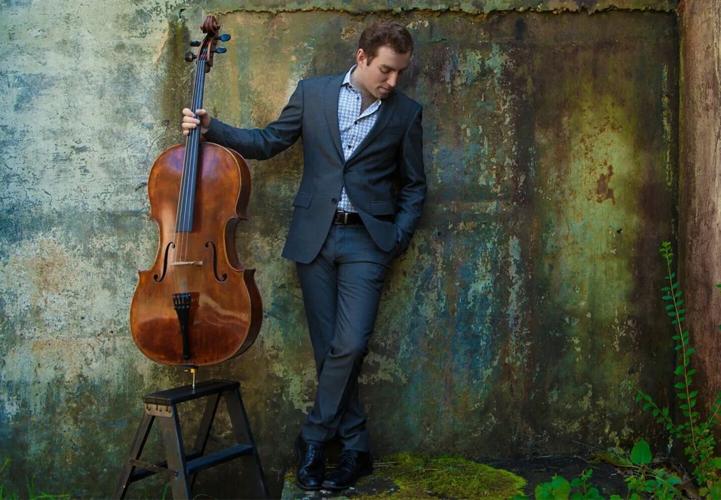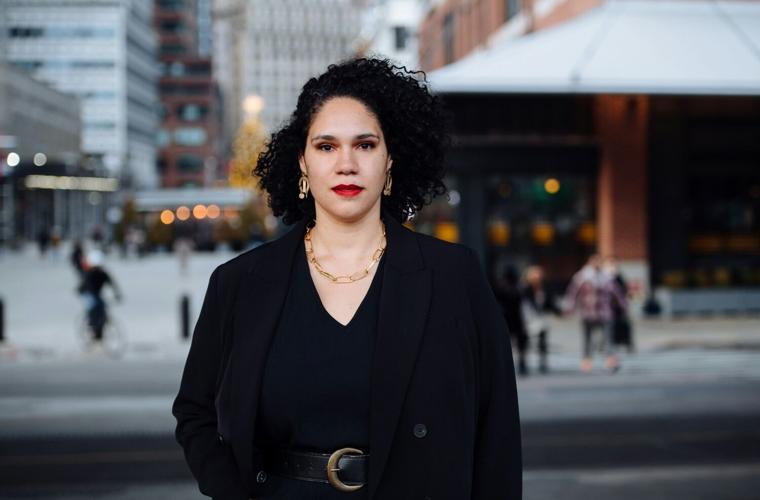Cellist Tommy Mesa is mildly obsessed when it comes to pickleball.
He’s a recent convert to the game, which uses a Wiffle ball and wooden paddles nearly double the size of their ping-pong cousins. There’s enough similarities in the game to remind Mesa of the tennis he played growing up.
“The scoring took me a while and after that annoyance, it was much easier and relaxing to play,” Mesa said during a late September phone interview moments after leaving a New York City pickleball court.
Mesa sees a lot of commonality between bowing his cello and swinging a racquet — or, in this case, a paddle.
“I think there’s a lot of relationship between swinging a racquet and being able to bow,” he explained. “I found that it was very, very similar, and, of course, the mental game of tennis and classical music and the execution in general. Being able to deliver in the moment is all kind of relatable.”
His mental game of classical music will be on full display when Mesa joins the Tucson Symphony Orchestra this weekend to perform Haydn’s Cello Concerto No. 1.

Cuban-American cellist Tommy Mesa joins the Tucson Symphony Orchestra this weekend to perform Haydn’s Cello Concerto No. 1.
This is Mesa’s second appearance as the orchestra’s artist-in-residence, following up on his November TSO Up Close recital at the Symphony Center. Mesa, joined by a handful of TSO musicians, performed Schubert’s Cello Quintet and two works penned for him in two Up Close concerts.
In addition to soloing on the Haydn on Friday, Dec. 13, and Sunday, Dec. 15, Mesa will perform Jessie Montgomery‘s “Divided,” another work composed for him.
“Divided,” for solo cello and orchestra, is a response to the social and political unrest that has plagued the millennial generation in recent years.
“It’s incredibly powerful. It’s essentially two entities sort of battling,” Mesa said.
The Grammy-winning Montgomery, named Musical America’s 2023 Composer of the Year, creates a conversation between the cello and orchestra. But that conversation, like many we have in today’s society, evolves into an argument.
Mesa said the composer was reflecting on the division in our country that has torn apart families and friends.
“We can never seem to get on the same page whether it’s about religion or politics or social unrest or even social topics in general,” Mesa said. “It is nodding towards that inability for any of us to get on the same page.”

New York-based composer Jessie Montgomery wrote “Divided” for cellist Tommy Mesa. He will perform it with the Tucson Symphony Orchestra this weekend.
Mesa said the argument unfolds as the cello plays a phrase, and the orchestra responds by playing the phrase slightly out of sync.
“It’s a very intense piece,” Mesa said. “It ends in the same way that it sort of progresses during the whole time in that the cello is alone with a single note on its own. That is a reflection that we are still not in agreement.”
“I think people connect with it in a very visceral way,” he added.
The orchestra, with guest conductor Francesco Lecce-Chong at the podium, opens this weekend’s “Haydn and Brahms” with Mozart’s Overture to “La Clemenza di Tito” and closes with Brahms’ Symphony No. 2.
Performances are at 7:30 p.m. Friday and 2 p.m. Sunday at Linda Ronstadt Music Hall, 260 S. Church Ave. Tickets are $14-$95 through tucsonsymphony.org.





